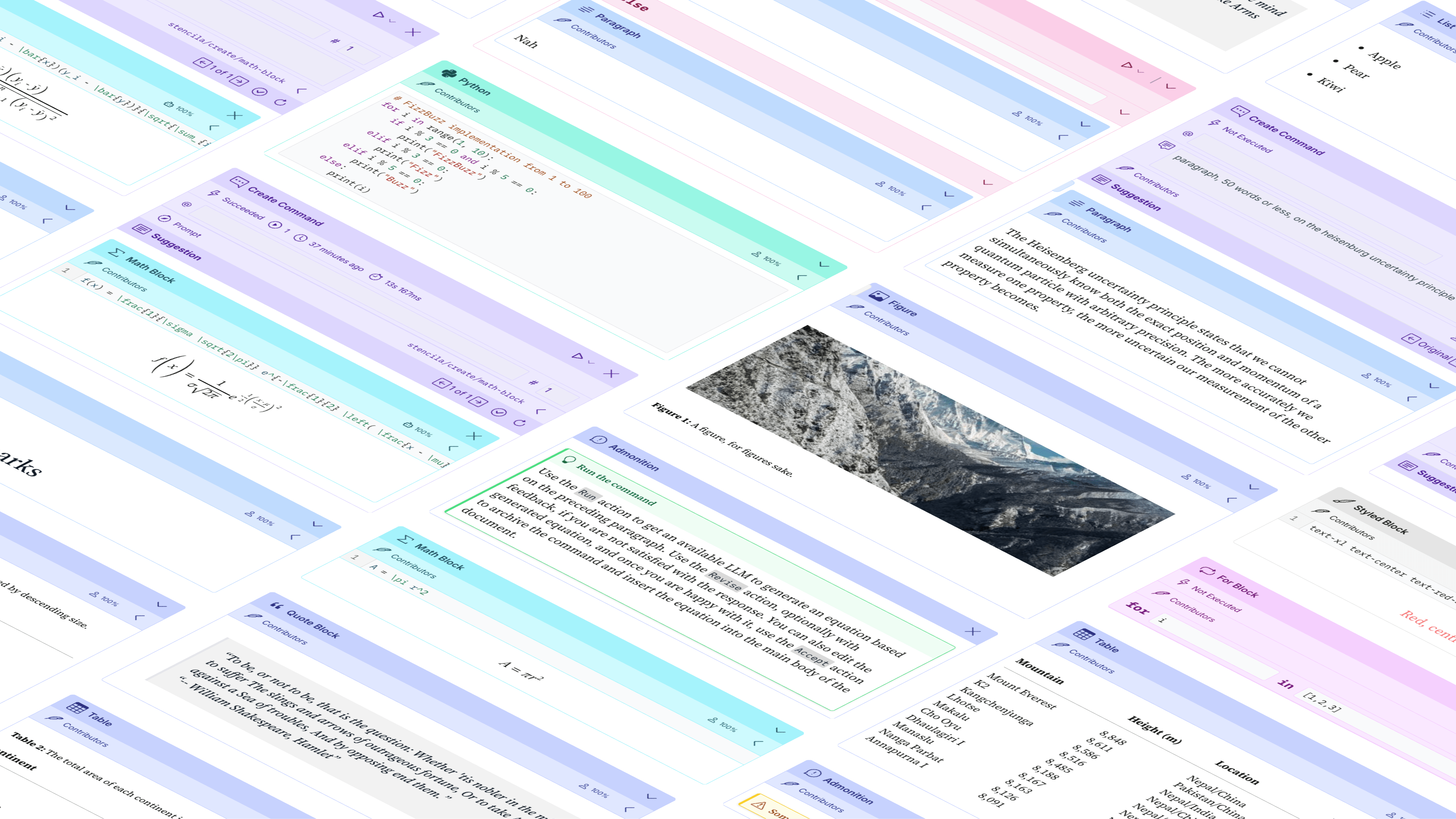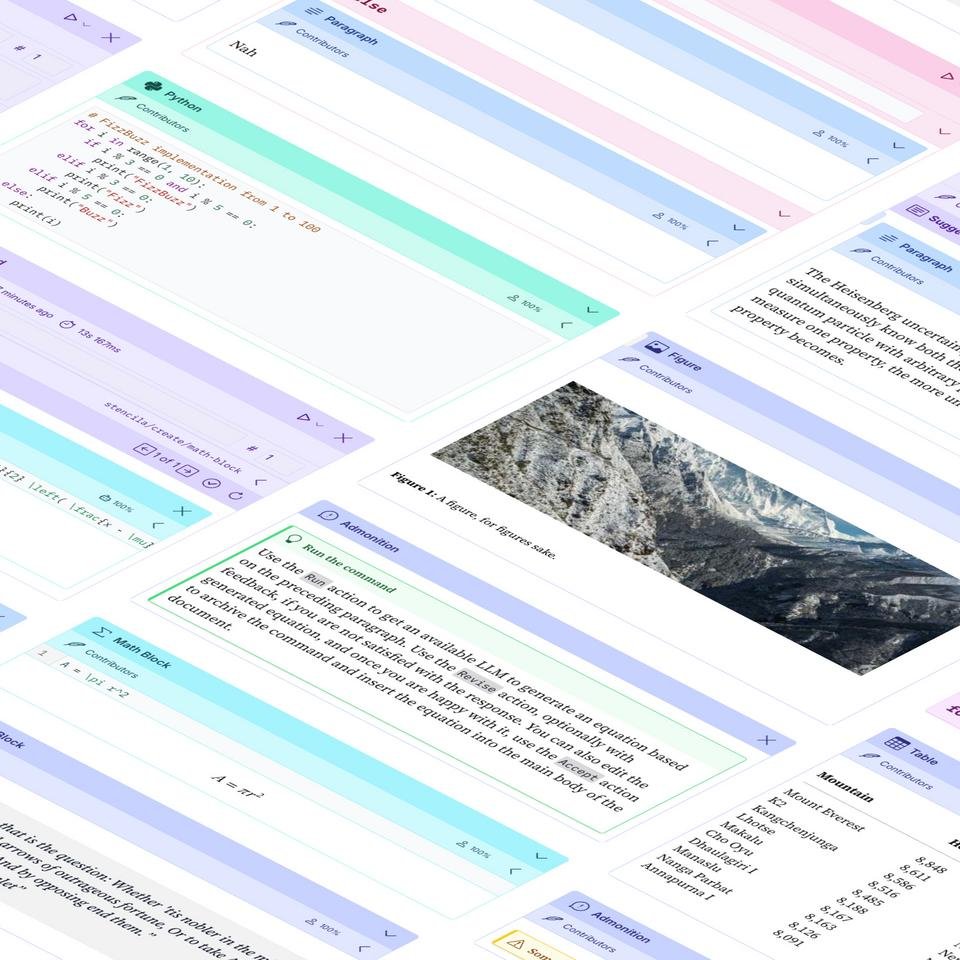Dragonfly has been working with Nokome Bentley on his startup, Stencila, which brings large language models to scientific research and publishing.
Stencila’s mission
Stencila is a platform that helps scientists improve the efficiency and reproducibility of their authoring workflows. This next version of Stencila continues this mission by improving the access to, and use of, generative AI in scientific documents.
“AI has the potential to improve scientific productivity a great deal, but there are several things holding those gains back”, Nokome says.
“One is that the interfaces where scientists currently use AI are outside of where they’re working. So they go to Chat GPT, they type something in, and they copy and paste the generated output back into the document.
“In that process, you lose both reproducibility and the provenance of the generated content. But also, the AI doesn’t have any context on the document that you’re working in, or the relevant scientific literature. Because of that, it often produces inappropriate or incorrect responses.”
Stencila solves these problems by bringing generative AI models, including science-specialised models, into the environments where scientists are writing.
Bringing Stencila to life
Dragonfly has been working with Nokome on developing Stencila, bringing software development skills, machine learning experience, and a knowledge of the problem that Stencila aims to solve. Team members Brett Calcott, Kusal Ekanayake, and Mike Parkin have all worked on the project.
“In the current rush of AI excitement, the problem is often seen as how to make the models smart enough to replace humans,” Brett says.
“Stencila focuses on a problem that has had far less attention: how do we best integrate this marvellous, but frequently capricious, intelligence into our existing methods for collaborative thinking. This switch in focus throws up a whole new set of problems.”
Thanks to the Astera Institute
Nokome has worked part-time on Stencila for much of the past decade. Last year, he secured funding from the US-based Astera Institute that has allowed him to take leave from Dragonfly and work full time on the project.
Astera Open Science Programme Director, Jessica Polka, says what is particularly exciting about Stencila is its ability to build scientist trust in AI.
“What sets Stencila apart is that it’s a neutral platform that enables scientists to compare the different AI tools available to them in a more objective way.
“Rather than being a black box system, Stencila has a transparent approach, where the contributions of those models are being tracked, and the provenance of the words is auditable—you can easily tell what has been created by AI or by humans.”
Read more
Stencila 2.0 is available soon, keep up with Stencila news at stencila.io.
Stencila is an open-source project, so, if you are keen, you can help the project out by making contributions over at Github.
Work with us
At Dragonfly, we enjoy working with startups and early-stage organisations who are aiming to solve challenging problems. We can provide the data science experience and the software development skills needed to help bring your vision to life. To discuss your startup idea, contact us at hello@dragonfly.co.nz.



